24th Sunday in Ordinary Time Year A
Sunday September 13, 2026
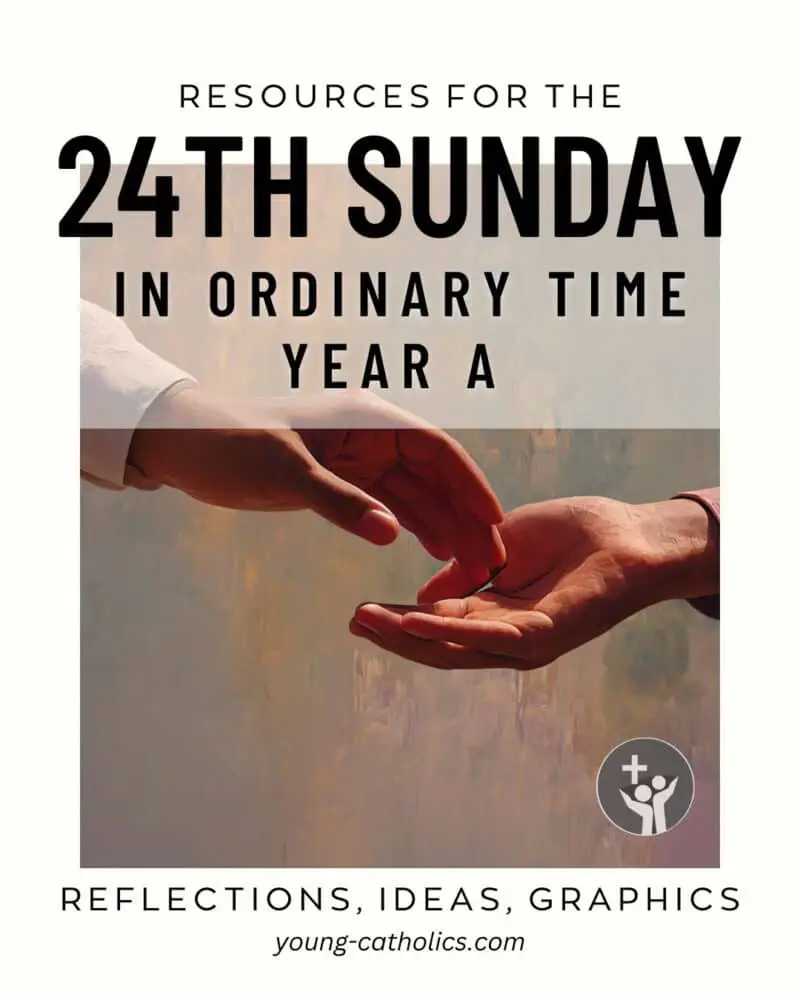
Forgiveness Without Limits
The 24th Sunday in Ordinary Time Year A reminds us that forgiveness is at the center of our faith. The readings show how anger and resentment can harm us, but mercy brings healing. God’s love is full of patience, and he asks us to treat others with the same care.
Sirach teaches that clinging to wrath only leads to trouble. We are told to remember our short lives and let go of grudges. Paul reminds the Romans that whether we live or die, we belong to the Lord. This means our choices should show mercy and unity, not judgment.
In the Gospel, Jesus tells a story about a servant who was forgiven but would not forgive. This parable shows that mercy must flow both ways. The 24th Sunday in Ordinary Time Year A is a call to forgive as we have been forgiven. It is about living in God’s mercy every day.
Mass Readings for the 24th Sunday in Ordinary Time Year A
- First Reading – Sirach 27:30-28:7: Wrath and anger are condemned, while forgiveness of others is commended. Remember mortality and God’s commandments, setting aside enmity and overlooking faults.
- Responsorial Psalm – Psalm 103: Bless the Lord for his kindness and mercy. He pardons iniquities, heals ills, and redeems lives. His compassion is vast, putting transgressions far away from those who fear him.
- Second Reading – Romans 14:7-9: Whether living or dying, we belong to the Lord. Christ’s death and resurrection affirm that he is Lord of both the living and the dead, and our lives should reflect that.
- Gospel – Matthew 18:21-35: Jesus teaches about forgiveness using a parable of a servant forgiven a huge debt but who then refuses to forgive a smaller debt. The master, angry at this hypocrisy, punishes him. Jesus warns that we must forgive others wholeheartedly.
The readings above are for lectionary section A. For other years see the links below:
24th Sunday in Ordinary Time Year B
24th Sunday in Ordinary Time Year C
Lord, if my brother sins against me, how often must I forgive? As many as seven times?
Matthew 18:20
Themes for the 24th Sunday in Ordinary Time Year A
The 24th Sunday in Ordinary Time Year A focuses on mercy, forgiveness, and belonging to God. The readings show that God calls people to forgive others, just as He forgives them.
- Forgiving Others: The Gospel teaches that people must forgive, just as God forgives them. Holding onto anger leads to judgment, but mercy brings peace.
- God’s Mercy: The master in the parable shows great mercy to his servant. This reminds people that God forgives them even when they do not deserve it.
- Hypocrisy in Unforgiveness: The servant who was forgiven a great debt refused to forgive a smaller one. This warns that people should not expect mercy from God if they do not show mercy to others.
- Belonging to the Lord: The second reading says that whether people live or die, they belong to God. Their lives should reflect His love and mercy.
- Letting Go of Anger: The first reading warns against wrath and hatred. People should remember that life is short and focus on love and forgiveness.
- God’s Judgment: The Gospel shows that God expects people to forgive. Those who refuse to forgive will face consequences.
Forgiveness is not always easy, but it is necessary. The readings for the 24th Sunday in Ordinary Time Year A remind people that God forgives them, so they must also forgive others.
Resources for the 24th Sunday in Ordinary Time Year A
Sunday September 13, 2026

Modern Day Version of The Parable of the Unforgiving Servant
The 24th Sunday in Ordinary Time Year A features Jesus’ Parable of the Unforgiving Servant. Its historical context of servitude may be unfamiliar to today’s youth. To make it relatable, a retelling casts a soccer team captain named Mike, echoing the parable’s themes. This modern adaptation helps youth grasp forgiveness’s essence.
The provided discussion prompts guide introspection on challenging forgiveness situations and receiving forgiveness. The focus is on healing and letting go of grievances, aligning with the parable’s core message. The challenge encourages teens to evaluate their lives, prompting them to release resentment and seek reconciliation.

Forgiveness Flowers Craft
The 24th Sunday in Ordinary Time Year A features the gospel from Matthew 18:21-35. This Forgiveness Flowers craft corresponds beautifully with the teachings of the Parable of the Unforgiving Servant. Crafting each petal to mirror the lesson of mercy and compassion from the scripture, it vividly illustrates the message that forgiveness is an ongoing practice.
The king’s mercy in the parable reflects our call to generously extend forgiveness. This craft serves as a gentle reminder of this biblical teaching, aiding both children and adults in internalizing and applying this vital principle in their daily lives.
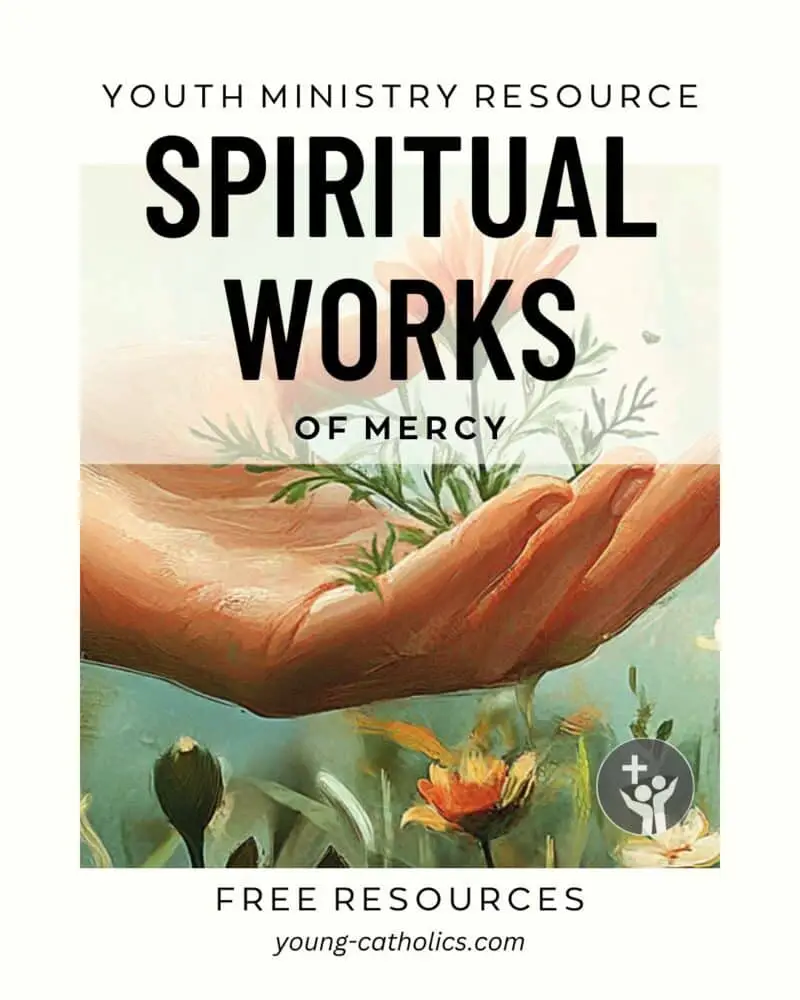
The Spiritual Works of Mercy
The Spiritual Works of Mercy, which include forgiving injuries and bearing wrongs patiently, align with the message of the Gospel for the 24th Sunday in Ordinary Time Year A (Matthew 18:21-35). In this Gospel, Jesus teaches about forgiveness through the parable of the Unforgiving Servant.
Jesus underscores the importance of wholehearted forgiveness, emphasizing the connection between the Gospel message and the practice of the Spiritual Works of Mercy.

The Book of Sirach: Let Go of Wrath
Sirach often gives practical wisdom for daily life, calling people to live justly before God. In this passage for the 24th Sunday in Ordinary Time Year A, anger and resentment are rejected. Instead, we are reminded of our human limits and the need to follow God’s law. The book often urges humility and right living, and forgiveness is part of that path.
This teaching also ties into Sirach’s theme of preparing for judgment. Remembering death encourages people to live in a way that honors God and others. Forgiveness is shown as an act of wisdom and obedience. Just as Sirach calls us to balance fear of the Lord with mercy toward others, this reading reminds us that true justice involves setting aside hatred.
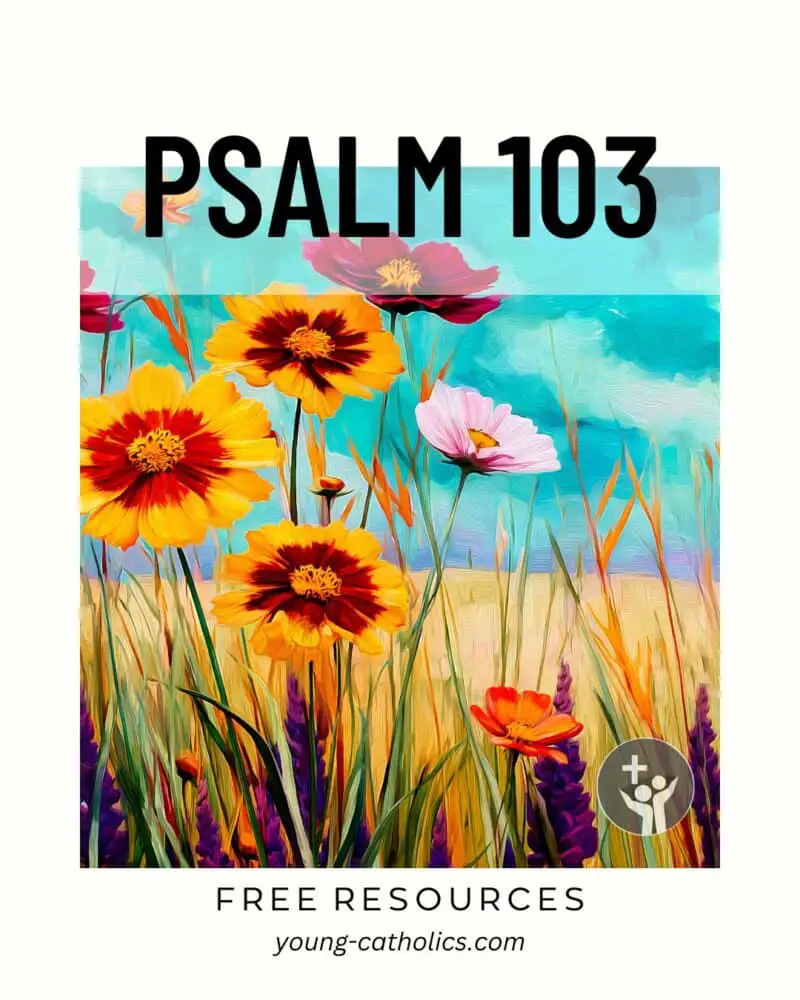
Psalm 103: Bless the Lord
Psalm 103 celebrates God’s mercy, a major theme throughout the Psalms. For the 24th Sunday in Ordinary Time Year A, it reminds us that God is slow to anger and rich in kindness. This matches the call to forgive, since God does not hold our sins against us. Instead, he heals, redeems, and draws us back into his care.
The psalm is part of a larger pattern of thanksgiving found in the Psalter. It focuses on God’s covenant love, showing how his mercy stretches beyond human limits. This helps the faithful remember that forgiveness is rooted in God’s character. The psalm lifts up God’s faithful love as the model for our own lives.

The Letter to the Romans: Belonging to the Lord
In the letter to the Romans, Paul writes about unity in the Christian community. This reading for the 24th Sunday in Ordinary Time Year A fits into that message by teaching that our lives are anchored in Christ. Whether alive or dead, we are his. This helps believers place daily struggles in the bigger picture of belonging to God.
Romans often addresses divisions among people. Paul explains that Christ’s death and resurrection bring all together under one Lord. This means our relationships should show mercy and understanding, not judgment or conflict. The theme of community life in Christ runs throughout the letter, making this short passage part of the larger vision of life in God.
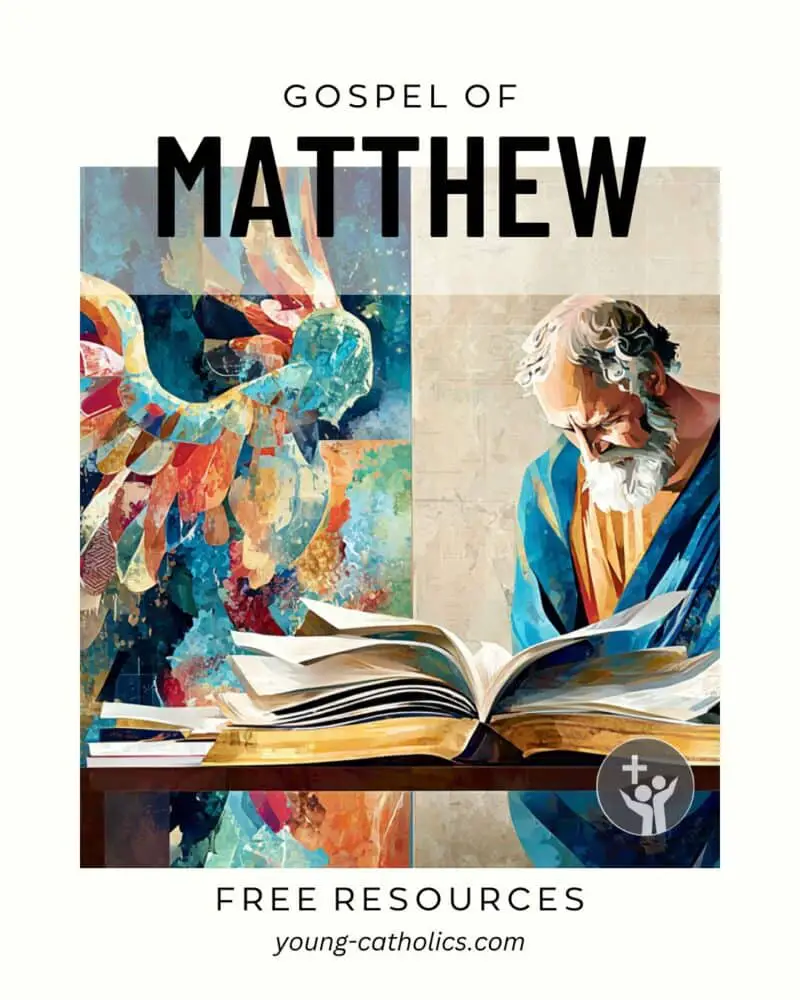
The Gospel of Matthew: Forgive as You Are Forgiven
Matthew’s Gospel highlights Jesus as teacher, showing how his followers should live in God’s kingdom. For the 24th Sunday in Ordinary Time Year A, this parable stresses forgiveness. The contrast between the master’s mercy and the servant’s hardness of heart reveals that disciples must forgive fully, as they have been forgiven. It builds on the earlier teaching about reconciliation within the community.
This section is part of Matthew’s focus on life in the Church. Forgiveness is not optional but necessary for the health of the community. The Gospel repeatedly shows Jesus calling his followers to mercy, justice, and love. The parable underlines that hypocrisy in mercy leads to judgment, while real forgiveness keeps the community faithful.
Homilies and Commentaries for the 24th Sunday in Ordinary Time Year A
Sunday September 13, 2026
Forgiveness
Fr. Mike Schmitz discusses the Christian teaching of forgiveness, explaining that it’s a decision, not a feeling, and doesn’t mean you’re no longer hurt or have to trust the person again. This reflection covers how forgiveness is about releasing others from their debts to you, allowing for personal freedom and growth with God’s grace. This video could spark a discussion about the gospel for the 24th Sunday in Ordinary Time Year A.
Hugging Anger
Bishop Robert Barron’s homily for the 24th Sunday in Ordinary Time Year A emphasizes the themes of anger, vengeance, and forgiveness, as seen in the Book of Sirach. He illustrates how humans cling to old resentments, leading to conflicts on personal and global levels. Contrasting the destructive nature of revenge, he advocates forgiveness as the antidote. Barron encourages his listeners to take concrete steps towards healing broken relationships, following the example of God’s boundless forgiveness, and to let go of long-held grudges, thus promoting a path of love and reconciliation.
Make Sure You are in Need of Forgiveness
In his homily for the 24th Sunday in Ordinary Time Year A, Fr. Richard Rohr emphasizes the importance of understanding and needing mercy to give it to others. Drawing on personal experiences as a jail chaplain and referencing the Gospel, he highlights that those who have felt the pain of guilt and been forgiven can truly empathize and forgive others. He advises recognizing one’s need for forgiveness daily, not as self-degradation but as a means to connect with God’s infinite mercy, stressing that understanding the suffering of others leads to true forgiveness.
The Debt We Owe
Scott Hahn reflects on the teachings of mercy and forgiveness in the Christian faith for the 24th Sunday in Ordinary Time Year A. He emphasizes that while humans often harbor anger, Christ urges forgiveness, highlighting the command to forgive seventy times seven times, symbolizing infinite mercy. Hahn connects this with the notion that we have been purchased by Christ’s blood, and our forgiveness toward others should be a sincere expression of gratitude for the mercy shown to us. He encourages setting aside judgments and conflicts, focusing on forgiveness, and living in anticipation of Christ’s kindness and compassion.
Reflection for the 24th Sunday in Ordinary Time Year A
The 24th Sunday in Ordinary Time Year A focuses on mercy and forgiveness. The readings remind people that anger and grudges only bring harm, while forgiveness brings freedom. God forgives generously and expects His people to do the same. The Gospel parable warns that refusing to forgive can lead to serious consequences. These reflections explore how to let go of anger, share mercy, and make forgiveness a daily practice.
Let Go of Anger and Choose Mercy
The first reading for the 24th Sunday in Ordinary Time Year A warns against holding onto anger and seeking revenge. It reminds people that wrath and hatred are harmful and do not lead to peace. Anger can feel justified, but it often traps people in bitterness. The reading calls for forgiveness, not because it is easy, but because it is necessary for a life of faith.
God’s commandments guide people toward love and mercy. The reading urges people to remember that they, too, have needed forgiveness. If God is willing to forgive, then they must also forgive others. This is not about ignoring wrongdoing but about refusing to be consumed by hatred.
Forgiveness does not mean forgetting or pretending nothing happened. It means choosing to let go of resentment and entrusting justice to God. When people hold onto grudges, they carry a heavy burden that affects their hearts and relationships. Releasing that burden allows them to live with greater peace.
The 24th Sunday in Ordinary Time Year A reminds people that life is short. Holding onto anger does not add anything good to life. Instead, choosing mercy and forgiveness brings freedom. God’s love is shown in His mercy, and He asks His people to share that mercy with others.
Mercy Is a Gift to Be Shared
The Gospel for the 24th Sunday in Ordinary Time Year A tells the parable of the Unforgiving Servant. The servant is forgiven a huge debt by his master but refuses to forgive a much smaller debt owed to him. The master is furious and punishes him. Jesus uses this story to teach that those who receive mercy must also show mercy.
God freely forgives, but He expects people to forgive in return. When someone refuses to forgive, they close themselves off from God’s mercy. The parable makes it clear that forgiveness is not optional. It is a necessary part of following God.
Forgiveness can be hard, especially when someone has been deeply hurt. But the Gospel challenges people to trust that forgiving others is part of God’s plan. It does not mean excusing bad behavior, but it does mean choosing to let go of anger and resentment.
The 24th Sunday in Ordinary Time Year A is a reminder that God’s mercy is endless. People should not take it for granted or keep it for themselves. Instead, they should share it with others, knowing that forgiving others brings them closer to God.
Forgiveness Is a Way of Life
The readings for the 24th Sunday in Ordinary Time Year A show that forgiveness is more than a single act. It is a way of life. People are called to forgive not just once, but again and again. Jesus tells Peter to forgive “seventy times seven times,” meaning there should be no limit to mercy.
Many people struggle with the idea of forgiving someone over and over. They may think it is unfair or that it lets the other person win. But forgiveness is not about letting someone get away with harm. It is about refusing to let anger and bitterness take control.
Sirach reminds people that they must forgive if they want to receive forgiveness from God. The Gospel parable warns about the danger of refusing to forgive. When people hold onto grudges, they harm themselves more than anyone else. Mercy is not just for the benefit of others; it is also for the one who forgives.
The 24th Sunday in Ordinary Time Year A invites people to think about how they forgive. Do they forgive as God forgives, or do they hold onto past wrongs? Choosing mercy does not mean being weak. It means living in a way that reflects God’s love, every single day.
Forgiveness is not always easy, but it is necessary for those who follow God. The 24th Sunday in Ordinary Time Year A teaches that mercy is not just a suggestion—it is a command. When people forgive, they reflect God’s love and open their hearts to His peace. The challenge is to choose forgiveness, even when it is difficult. With God’s help, they can let go of anger and live with mercy.
Prayer
Lord, You are full of mercy and love. Teach me to forgive as You forgive. Help me let go of anger and resentment. Fill my heart with peace so I can show kindness to others. Strengthen me when forgiveness is difficult. Let my actions reflect Your love each day. Amen.
Reflection Questions for the 24th Sunday in Ordinary Time Year A
- Why is it sometimes hard to forgive others?
- How has forgiveness brought peace into your life?
- What happens when people hold onto anger?
- How does the parable of the Unforgiving Servant challenge you?
- Why does God expect people to forgive?
- Have you ever experienced the freedom that comes from letting go of a grudge?
- How can you show mercy in your daily life?
- What does it mean to forgive someone without limits?
- How can prayer help when forgiveness is difficult?
- What do the readings for the 24th Sunday in Ordinary Time Year A teach about God’s mercy?
Quotes and Social Media Graphics for the 24th Sunday in Ordinary Time Year A
Social Media Graphics and Bulletin Artwork
If you would like an image to be made available as a specific product (card, poster, mug, etc.) or as an extra high resolution image for personal use just post a comment about what you want and we will create a link to our online store for you.
The Gift of Forgiveness

This image for the 24th Sunday in Ordinary Time Year A captures the beauty of mercy and forgiveness. It is perfect for parish bulletins, newsletters, or other ministry resources as a reminder of God’s call to let go of anger and share compassion.
Download it today to bring color and meaning to your parish communications.
Paid subscribers may download a large copy this digital artwork without watermarks, suitable for use in bulletins, social media, newsletters, etc., free of charge by clicking here. You must be logged in as a paid subscriber to access the file.
Only current paid subscribers have the rights to use the artwork.
Music Suggestions for the 24th Sunday in Ordinary Time Year A
Sunday September 13, 2026
These music selections for the 24th Sunday in Ordinary Time Year A focus on themes of mercy, forgiveness, and belonging to God. Some songs reflect on God’s endless love and His call to show that same love to others. Others remind people that forgiveness brings peace and freedom, just as the readings teach. Some selections encourage unity, calling people to live with charity and kindness. Others focus on trusting in God and knowing that His mercy is greater than any sin. These songs help worshippers reflect on the message of the readings and prepare their hearts to forgive as God forgives.
- 10000 Reasons by Steve Angrisano
- Amazing Grace by John Newton, Cleveland, J. Jefferson & Austin Lovelace
- As It Is in Heaven by Matt Maher
- Because He Lives by Matt Maher
- Bread for the World by Bernadette Farrell
- Empty and Beautiful by Matt Maher
- Forgive Our Sins as We Forgive by Koiné
- God of Day and God of Darkness by Marty Haugen
- Great Are You Lord by All Sons and Daughters
- Joy of the Lord by Rend Collective
- Let Us Break Bread Together by Randall Debruyn
- No Greater Love by Mark Friedman
- Peace Prayer by John Foley
- Praise to You, O Christ Our Savior by Bernadette Farrell
- Sound of Hope by Ike Ndolo
- The Lord Is Kind and Merciful by Rick Modlin
- There’s a Wideness in God’s Mercy by Fredrick William Faber
- Ubi Caritas by Bob Hurd
- Where Charity and Love Prevail
- You Are Holy / Prince of Peace by Michael W. Smith
Music directors and musicians can use these songs to deepen the message of the 24th Sunday in Ordinary Time Year A. The themes of mercy, forgiveness, and trust in God fit well with the readings. Consider trying these selections or suggesting others that capture the same spirit. Share your recommendations in the comments and help others find music that speaks to the heart of this Sunday’s message.
Questions and Answers for the 24th Sunday in Ordinary Time Year A
What is the main message of the first reading?
The first reading teaches that anger and grudges harm the person who holds them. It encourages people to forgive and trust in God’s mercy.
Why does the first reading connect forgiveness with remembering death?
It reminds people that life is short, and holding onto anger is a waste of time. Instead of focusing on resentment, they should seek peace and live with mercy.
What does the second reading say about belonging to the Lord?
The reading teaches that all people belong to God, whether they are alive or have passed away. This means they should live in a way that reflects His love and mercy.
What lesson does the Gospel teach about forgiveness?
Jesus teaches that people must forgive others, just as God forgives them. If they refuse to forgive, they cannot expect mercy from God.
Why was the master in the parable so angry at the servant?
The master forgave the servant’s large debt, but the servant refused to forgive a much smaller debt. This showed that he did not understand the mercy he had received.
What does the parable say about God’s mercy?
It shows that God is generous in forgiving sins, but He expects people to be merciful too. Those who do not forgive others risk losing God’s forgiveness.
How does the 24th Sunday in Ordinary Time Year A challenge people to live differently?
It calls people to let go of anger and choose forgiveness. This can be hard, but it leads to peace and a stronger relationship with God.
Why does Jesus say to forgive without limits?
Forgiveness is not about keeping count. Just as God does not limit His mercy, people should not place limits on forgiving others.
How can someone forgive when they are deeply hurt?
Forgiveness does not mean forgetting or ignoring pain. It means choosing to let go of resentment and asking God for help to move forward.
What happens if someone refuses to forgive?
Holding onto anger and refusing to forgive can lead to bitterness. It also creates distance between them and God, who calls all people to be merciful.
How can the readings for the 24th Sunday in Ordinary Time Year A help in daily life?
They remind people to forgive, even when it is difficult. Choosing mercy brings peace and strengthens relationships with others and with God.
What should someone do if they are struggling to forgive?
They can pray for God’s help and ask Him to soften their heart. Talking to a trusted friend or priest may also help.
Forgive as God Forgives
The 24th Sunday in Ordinary Time Year A teaches about mercy and forgiveness. The first reading warns against anger and holding grudges. It reminds people that life is short and that they should forgive others.
The second reading explains that everyone belongs to God, whether they live or die. This means that people should live in a way that honors Him. Part of this is showing love and mercy to others, just as God does.
The Gospel tells a parable about a servant who was forgiven a large debt but refused to forgive a smaller one. Jesus warns that those who do not forgive will not receive forgiveness from God. The readings make it clear that forgiveness is not optional for those who follow God.
The 24th Sunday in Ordinary Time Year A calls people to let go of anger and show mercy. God’s mercy is great, and He expects His people to show the same kindness to others.
Your Turn
Forgiveness is not always easy, but it is necessary. The readings for the 24th Sunday in Ordinary Time Year A show that God’s mercy is unlimited. He forgives people, even when they do not deserve it. In return, He asks them to forgive others with the same generosity.
Take time to reflect on these readings. Think about times when you have struggled to forgive. What helped you? Share your thoughts in the comments and encourage others to do the same.


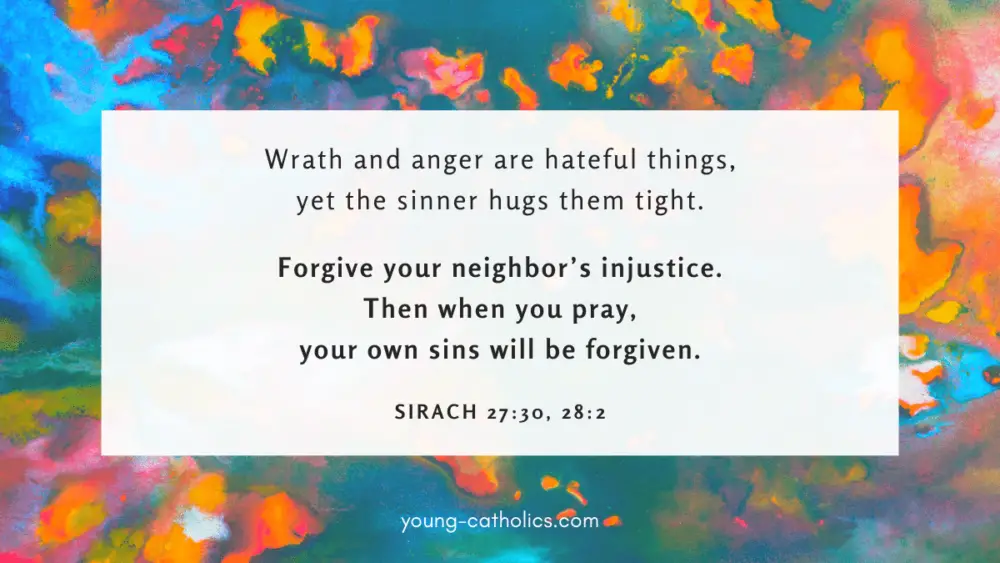
Leave a Reply